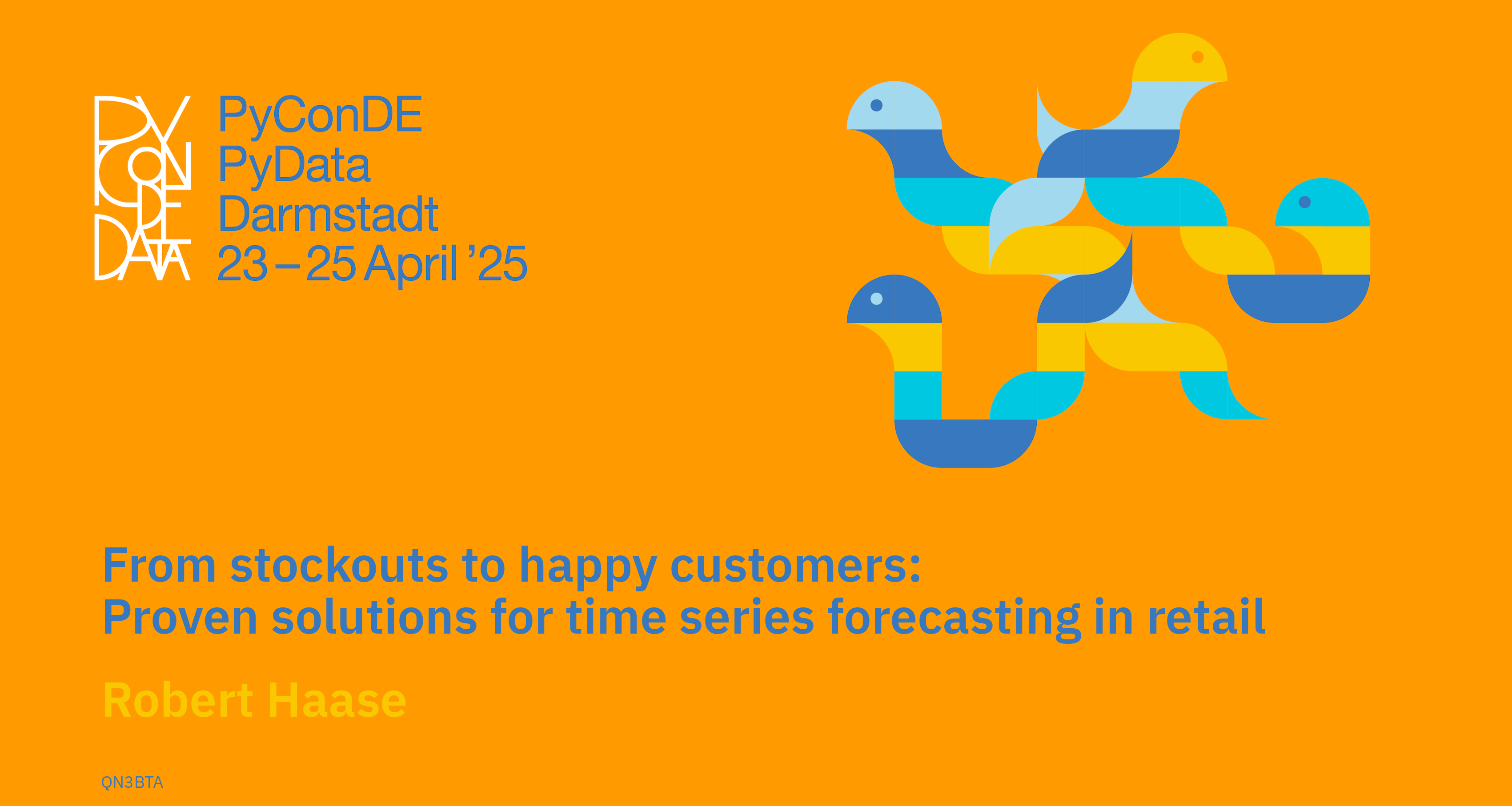Retail time series forecasting is uniquely challenging: stockouts censor true demand, promotions cause irregular demand spikes, cold-start products lack historical data, and diverse product portfolios introduce modeling complexities. These challenges can lead to inefficiencies such as over- or understocking in the warehouses and therefore also to dissatisfied customers. This talk explores proven strategies to tackle these issues and deliver actionable insights.
Learn how to handle constrained demand caused by stockouts both with adequate imputation as well as machine learning strategies, incorporate promotional effects with suitable feature engineering techniques that also help in cases of incomplete promotional data, predict demand for new products using transfer learning and also discover how ensembling strategies and clustering can simplify forecasting for diverse, imbalanced datasets.
We’ll also highlight tools like statsforecast, neuralforecast, scikit-learn and our AutoML framework with a strong stacking ensembling mechanism in it's core. Whether you’re a seasoned data scientist or a Python developer exploring forecasting, the goal of this session is to introduce you to the key challenges in retail forecasting and equip you with actionable insights to successfully overcome them in real-life scenarios.
